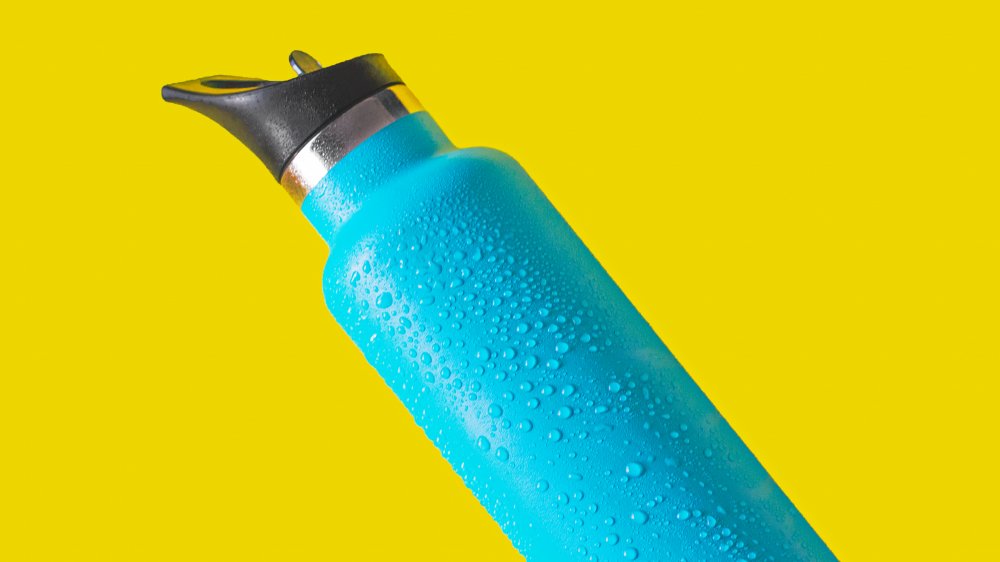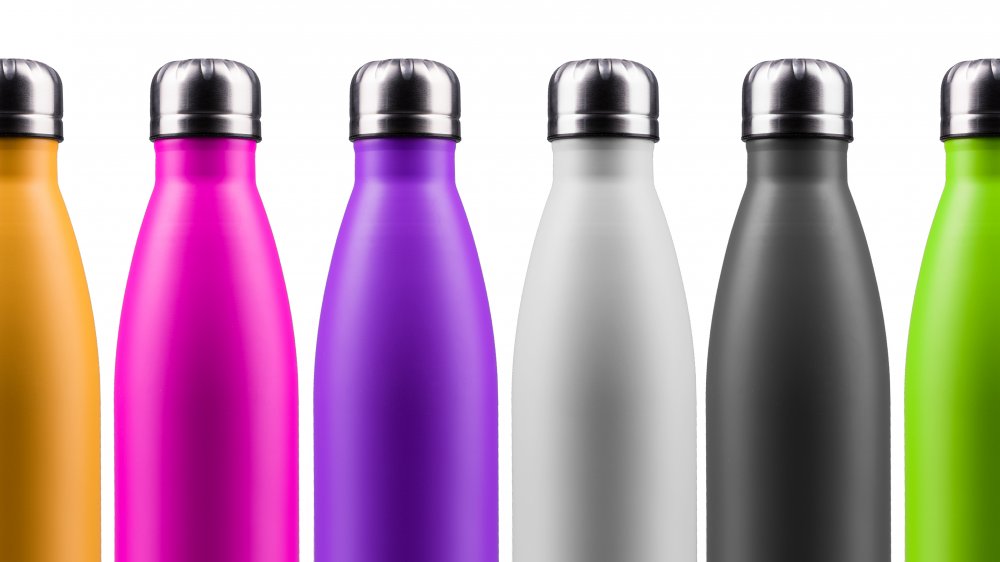What Really Happens When You Don't Properly Wash Your Water Bottle
If you're guilty of forgetting to clean your trusty water bottle — the very same water bottle you drink out of day in, day out — you're probably not alone. It's not exactly something that's going to be at the top of your to-do list, but according to experts, it absolutely should be. Here's why.
First of all, the inside of your water bottle is basically swimming in bacteria (especially if you leave any water in your bottle for a few days at a time). "Mold tends to grow in stagnant water, and since the bottle is never sterile, bacteria can grow, too," Maria Vila, DO, a family medicine specialist in Morristown, New Jersey, told LiveStrong. "If you are drinking directly from the bottle, bacteria from your mouth will be transferred to the water and grow inside your bottle," she added.
What happens when you don't clean your water bottle
Secondly, the outside of your water bottle may actually crawling in more bacteria than the inside. "Bacteria from your mouth is not so much of a concern because your body is familiar with it, but bacteria coming from your hands (and therefore from your larger environment) or coming from someone else whom you share a bottle with is the issue," Alex Lewis, RD, LD, a dietitian for Baze, told LiveStrong. Just think about all the different places you leave it, from your car to the floor when you're doing mat work at the gym. Ew!
Worse still, contaminated water bottles, full of bacteria on the inside and out, are also the kind of place where germs thrive, meaning it's easier than ever for them to spread. As Miryam Z. Wahrman, Ph.D., professor of biology at William Paterson University told Reader's Digest, "That's not to say that every germ you encounter will make you sick, because we have immunity and other barriers to germs, like our stomach acid, for instance, that kill microbes. But being exposed needlessly to unknown microbes could increase your risk of disease."
Bacteria or viruses on (or in) your bottle can lead to nausea, fatigue, or headaches, and if you're unlucky and have a small mold population growing within, you could experience allergic reactions, such as sneezing or a runny nose.
Time to get washing!


